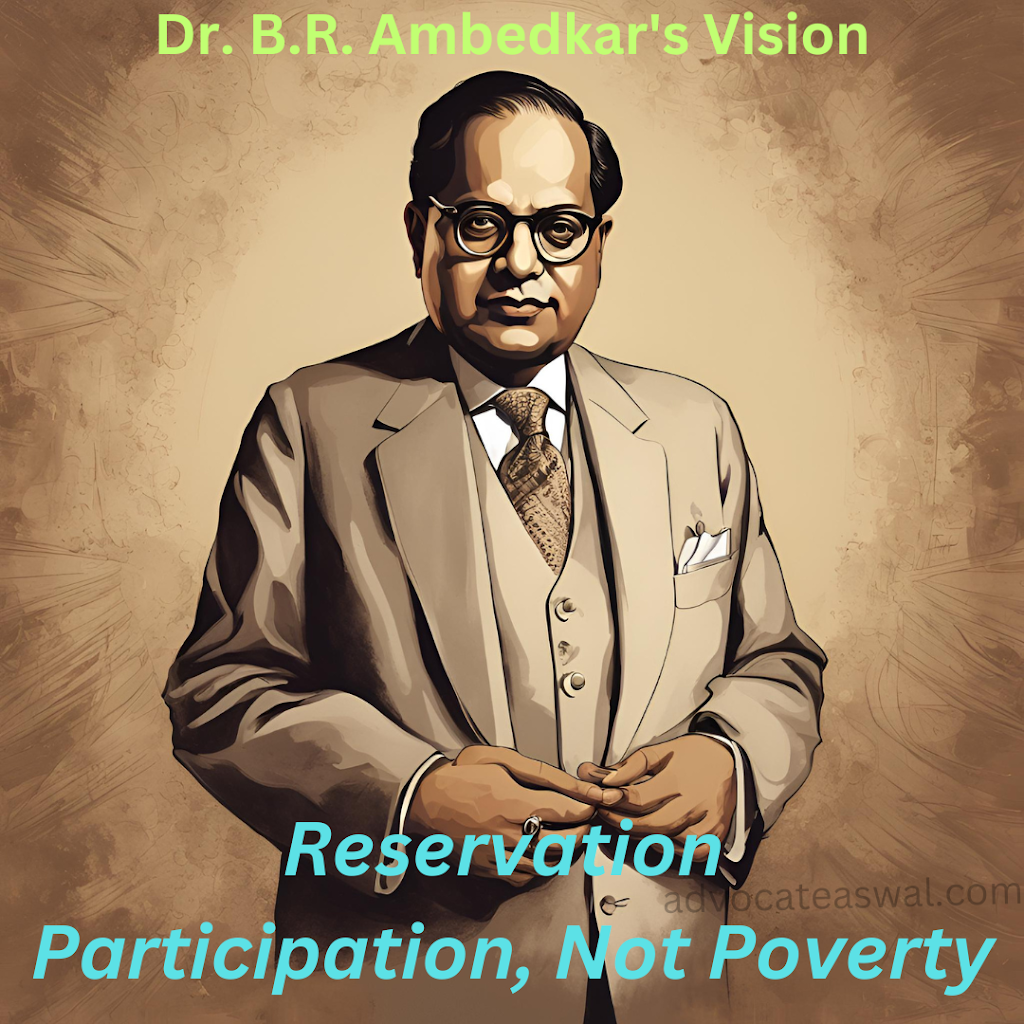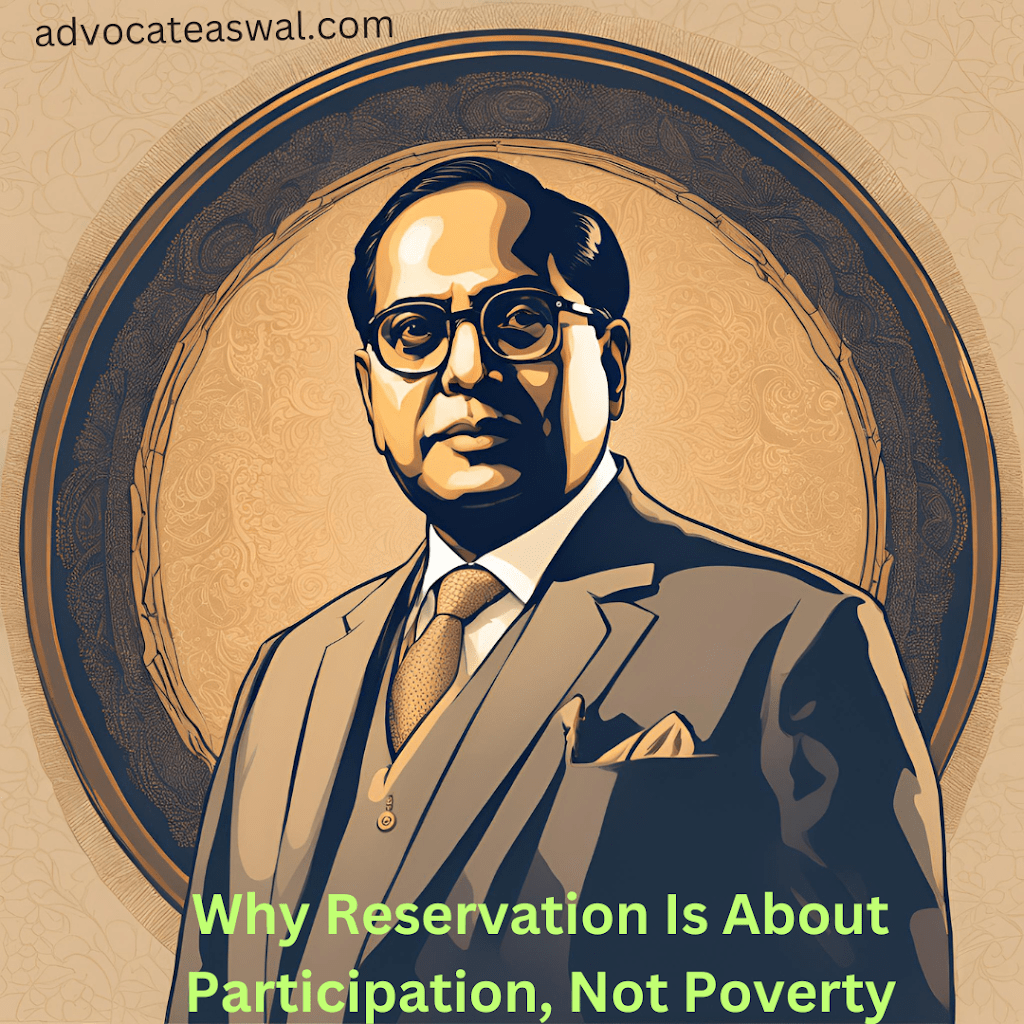Reservation in India | Ensuring Participation, Not Just Poverty Relief
Reservation A Matter of Participation, Not Poverty

Reservation in India
Understanding the Core Purpose of Reservation
Reservation in India was introduced to address the deep-rooted inequalities and social exclusion that have plagued the country for centuries. It was never meant to be just a financial aid program for the economically disadvantaged; rather, it was designed to provide opportunities for communities that have been systematically oppressed and marginalized.
Dr. B.R. Ambedkar, often revered as the Father of the Indian Constitution, was the principal architect behind this policy. He believed that true equality could never be achieved without proper representation in various spheres of life—whether in education, employment, or politics. For Ambedkar, reservation was about participation and ensuring that every community, especially those who had been sidelined, had a voice in the decision-making processes of the nation.
Reservation and the Constitution of India
The concept of reservation is embedded in the Constitution of India. Articles 15 and 16 specifically address the need for affirmative action to uplift the socially and educationally backward classes and ensure their participation in all walks of life.
Article 15(4): This article allows the state to make special provisions for the advancement of any socially and educationally backward classes or for the Scheduled Castes and Scheduled Tribes.
Dr. B.R. Ambedkar, often revered as the Father of the Indian Constitution, was the principal architect behind this policy. He believed that true equality could never be achieved without proper representation in various spheres of life—whether in education, employment, or politics. For Ambedkar, reservation was about participation and ensuring that every community, especially those who had been sidelined, had a voice in the decision-making processes of the nation.
Why Reservation Is About Participation, Not Poverty

Reservation and Its Impact on Society
Reservation in Promotion – A Case for Equal Representation
The demand for reservation in promotions is a clear indication that reservation is about more than just poverty. It is about ensuring that marginalized communities are represented at all levels, including leadership and decision-making positions.
Without reservation in promotions, the representation of these communities in higher positions would remain disproportionately low. This lack of representation can perpetuate the cycle of exclusion and discrimination, making it difficult for these communities to achieve true equality.
The Constitution of India provides for reservation in promotions as a means to address this issue. By ensuring that marginalized communities have the opportunity to rise to leadership positions, reservation in promotions helps create a more inclusive and equitable society.
Conclusion –
Reservation remains a powerful tool for social justice in India. It is not just about economic support; it is about representation, participation, and rectifying historical wrongs. The vision of Dr. B.R. Ambedkar, the Father of the Indian Constitution, continues to be relevant today as we strive for a more inclusive and equitable society.
By understanding the true purpose of reservation, we can work towards creating a society where everyone, regardless of their background, has the opportunity to participate and succeed. The Constitution of India provides the framework for this, ensuring that reservation remains a vital tool in pursuing social justice
FAQs about Reservation
The primary purpose of reservation in India is to ensure participation and representation of historically marginalized communities in various spheres of life, including education, employment, and politics. It is not merely about poverty alleviation but about social justice and equality.
Reservation in promotions is important to ensure that marginalized communities are represented at all levels of decision-making. Without this, their representation in leadership positions would remain disproportionately low, perpetuating social inequalities.
The Constitution of India supports reservation through Articles 15(4) and 16(4), which allow the state to make special provisions for socially and educationally backward classes and provide reservations in appointments and promotions to ensure their adequate representation in public services.
